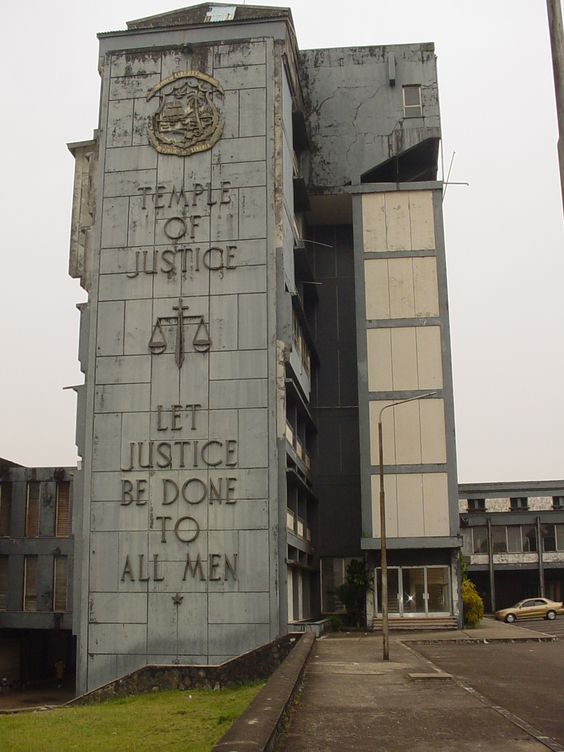Do the poor have justice? Is justice costly or cheap? Does the truth always win in the courtroom? The mixtape of the Liberian justice system is a combination of the jazz songs from inmates at local police stations, the afro dance hits at various checkpoints and the billboard charting hip-hop songs in the courtrooms of ongoing cases.
A few years ago, I was ecstatic and enthusiastic about moving to Monrovia. Growing up in the hinterland, every young person dreams about a shot at the Capital. You want to attend city schools, experience life in the city and most especially, grow on your own away from family— essentially, you want to be an adult; you want to experience the systems and master them. But for me, this did not go as planned.
Monrovia was not worth the hype. Upon my arrival, I had to face the irony of the environment and decide between the law and common sense. One evening in 2017, a ‘zogo’ jerked my phone and ran into the nearby community along the Somalia Drive. For a moment, I was devastated, then I became calm, and I let go. I accepted that my phone was gone and I just wanted to reach home safely and have a rest. After sitting in that jammed traffic for several minutes, I heard the sounds of an angry mob across the street chanting, “Rogue! Kill him; kill him.” I immediately stopped the driver, paid him and got out of the car to head straight to the scene. I didn’t want bloodshed. I do not support mob violence and logically speaking, why should someone be killed just because they stole a cell phone?
When I arrived at the scene, a little boy who was on the street selling when the thief stole the phone said, “Ah, okay, here is the phone owner.” Immediately, everyone started withdrawing their instruments of violence and looked towards me for a verdict. I needed to make a big decision in split seconds and the one thing I knew for sure was that I wanted no mob violence! I asked the thief if he had the phone and he said, “yes”. Being a law abiding citizen, I called to the nearby police station and asked that he be taken there for further investigation. What mistake that was.
Throughout the evening, the narrative that played out was very different from what I expected. When we arrived at the station, the young man who had admitted earlier that he had the phone started denying it. The thief seemed very notorious, and I even suspected that he was friends with most of the officers at that station. So, we first gave our statements, and I was then asked to pay 750 Liberian dollars for my case file. I was confused. “I thought I took a criminal to a rescue house for investigation but why am I the one to underwrite the cost of the investigation? Where are the taxpayers’ dollars?”
My head was flooded with many questions I could not ask all at once. The officer replied, “I want to type and print the statement and prepare a file for the case just in case we need to further the case at the court.” I wanted justice, and I wanted it legally, but I still didn’t understand why the government could not fund the process, and he outlined a thousand wrong reasons as to why that could not happen. I laughed, and because of my desiring quest for justice, I paid the money, even though that was my last stipend. The thief was placed into the jail cell, and I went home that night.
The next day was a mere continuation of the drama. I was asked to provide food for the prisoner for the next seventy-two hours while he was in detention before the case could be taken to court. I was shocked. Why was I made to undertake all these expenses? Was it a crime to bring an alleged criminal to a police depot? How does the average Liberian afford justice? But I wanted justice so badly that I agreed to feed him for those hours.
The investigation went on, but he consistently denied the allegations. In a quest to test the system, I asked that the case is transferred to the court. This was when the icing started to beautify the cake; the officer told me that I was responsible for transporting the criminal, a policeman and myself to the court. Can you imagine the flaws in our system? How does a poor victim cope with this? But I needed to see this through, so I transported us to the nearest court in Paynesville.
I consoled myself by thinking that the situation couldn’t possibly get worse; I was proven wrong once again. At the court, I was asked to register the case. The case registration process was hectic and money consuming-like the police station but on steroids. I had to get a case file and give nothing less than LRD 150 to every desk, some just for the signature, others for filing- all of which should be regular processes. I had to hire a government lawyer, and he was charging like a private lawyer. I had never felt so angry and disappointed in a system until that day. I kept asking myself, “Are these people not on salaries? Why would the government not provide these stationeries? What happens to those who are hurt and do not have the finances to go through all this?”
The straw that broke the camel’s back was when the court asked me to transferred him to the Monrovia Central Prison. The sheriff said to me, “You know, we do not have vehicles, so you have to pay $500 LRD for us to transport this man to Central since he does not have a bond and you will have to bring him back for the investigation.” Right there, I decided to let go. Even though I wanted justice, I could not afford to incur all those expenses. I then realized that throughout all of this, justice is costly and not for the average poor. You might not pay bribe but if you do not have the sufficient funds to pay to correct the wrongs that our leaders do not see, you might not get that justice you so desire and deserve. The system was made to serve and benefit a specific group—elites who could afford to pay for the cost of justice. So, when you hear that there is no justice for the poor, and happen to doubt that statement, reread this article.
Vermon is a Liberian with a change-oriented mindset. He believes that Liberia’s future lies technically in the hands of the youths. Passionate about transformative change that can impact today’s generation and the future’s, founded EduTalks. EduTalks is an initiative that empowers high school students through career development programs.


Reading this just made my day worse. The harsh reality of our system. Thanks for such a a wonderful piece.
An average Liberian would just say; “No justice for the poor,” so letting it go is my only alternative…